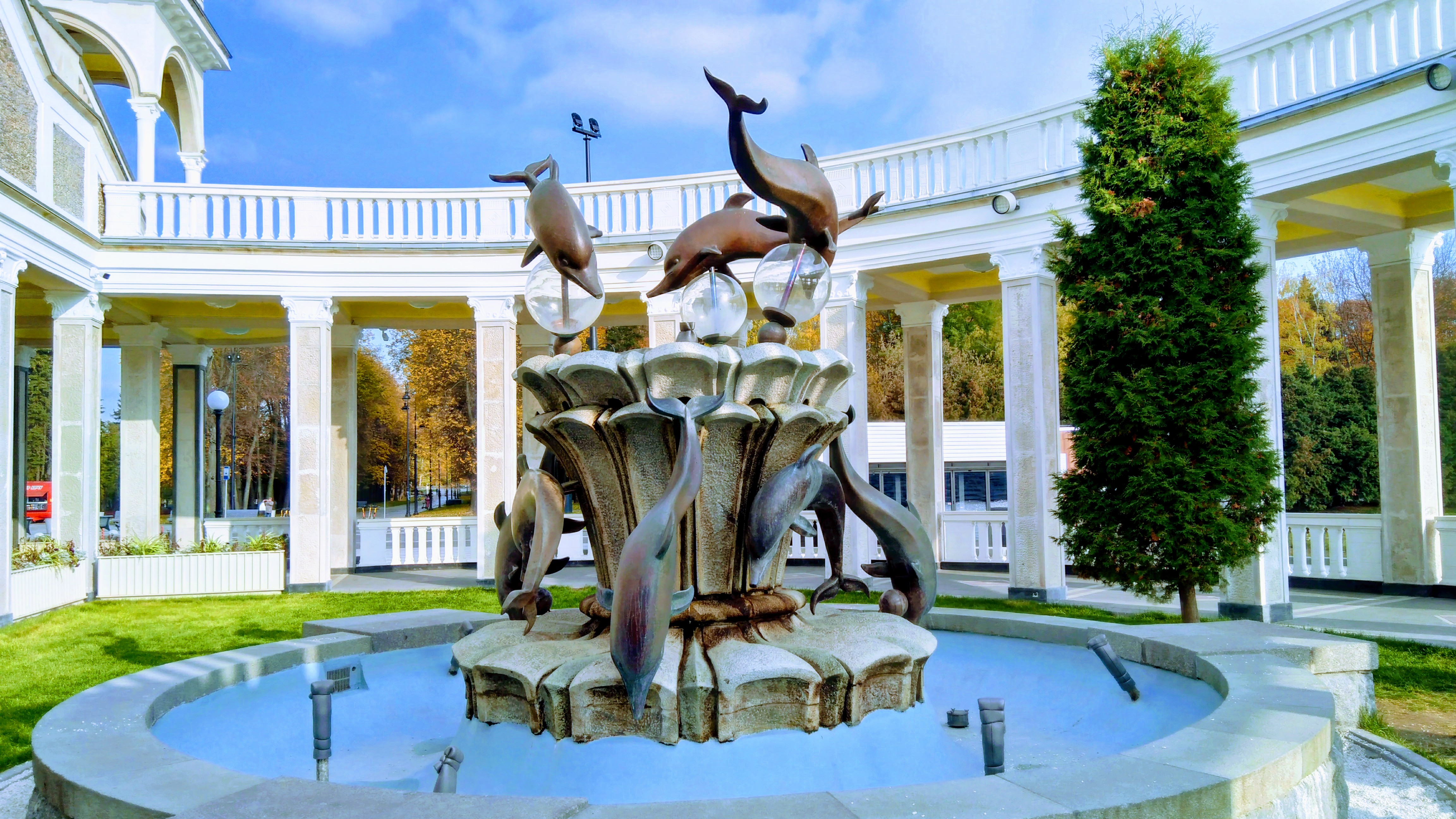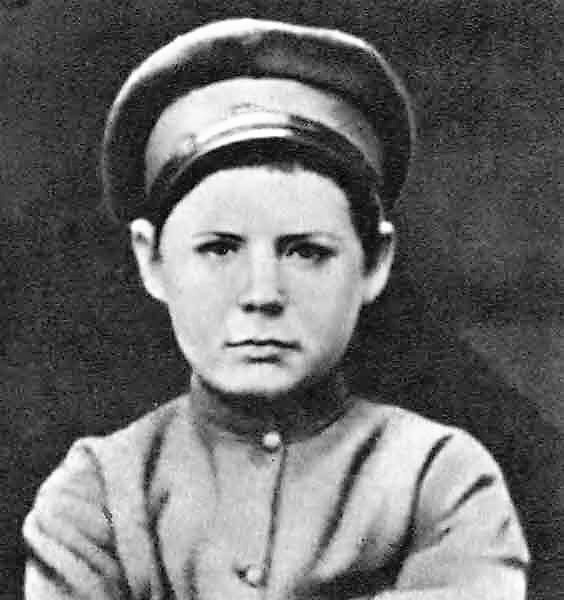|
Zinovy Moiseevich Vilensky
Zinovy or Zalman Moiseyevich Vilensky ( rus, Зиновий Моисеевич Виленский, 1899–1984) was a Soviet and Russian sculptor worked and lived in Moscow. Famous for his monumental portraits exhibited at landmarks of Russia such as Moscow, Tretyakov Gallery and many others. He was awarded Stalin Prize in 1948, Became a corresponding member of USSR Academy of Arts and a People's Painter of the USSR in 1980. Biography Zinovy was born on 15(3) October 1899 in Koriukivka, Chernigov Governorate. He finished the school at the Sugar Factory in Chernigovshina and then in 1914 entered Kiev Art College were studied till 1919 and before he had graduated moved back to his motherland, village Korukovka. He worked as a decorator in the theatre of Sugar Factory and also worked as a teacher of drawing in technical secondary school of Korukovka. Then he moved to Petrograd (now Saint Petersburg) and studied in Municipal free art workshops (Academy of Arts) preparing t ... [...More Info...] [...Related Items...] OR: [Wikipedia] [Google] [Baidu] |
Koriukivka
Koriukivka (, ) is a town in Chernihiv Oblast (oblast, province) of Ukraine. It was founded in 1657, over 350 years ago. It is the administrative center of Koriukivka Raion. It hosts the administration of Koriukivka urban hromada, one of the hromadas of Ukraine. The population in 2021 is estimated to be History During the reign of the Hetman Bohdan Khmelnytsky in 1657, who was in search of free land for the nobility class and the settlers from the Right-Bank of Ukraine. A search headed by the Cossack Omel'yanov Karukoyu found the eventual site and deemed it fit for a small settlement due to the thick protection of the surrounding forests. The city later suffered heavy losses during the Second World War and is a site of the Koriukivka massacre, World War II massacre. Koriukivka was almost totally burned, the population that lived there was exterminated with the Germans killing around 6,700 people and burning 1,290 homes. The destruction of Koriukivka together with its inhabitants ... [...More Info...] [...Related Items...] OR: [Wikipedia] [Google] [Baidu] |
Ivan Efimov
Ivan Efimov (russian: Иван Семёнович Ефимов 11 February 1878 – 7 January 1959) was a Russian sculptor. Along with his wife, Nina Simonovich-Efimova, the couple founded the tradition of Soviet puppet theater. Since 1958 he has been an Honorary member of UNIMA (International Puppetry Association). In addition to puppet design, Efimov was noted for his book illustration and sculpture. He created pieces for the Central Museum of Ethnology, the North River Terminal, several metro and railway stations and the Grand Kremlin Palace. Internationally his sculptures were awarded gold medals in 1937 at the Paris World Exhibition and a silver medal at the World Exhibition in Brussels, and in Russia he was honored as both an Artist of the Russian Soviet Federative Socialist Republic (RSFSR) and the People’s Artist of the RSFSR. Early life Ivan Semyonovich Efimov was born on 11 February 1878 in Moscow. His father, Semyon Grigorievich Efimov, was a government official and ... [...More Info...] [...Related Items...] OR: [Wikipedia] [Google] [Baidu] |
Pyotr Ilyich Tchaikovsky
Pyotr Ilyich Tchaikovsky , group=n ( ; 7 May 1840 – 6 November 1893) was a Russian composer of the Romantic period. He was the first Russian composer whose music would make a lasting impression internationally. He wrote some of the most popular concert and theatrical music in the current classical repertoire, including the ballets '' Swan Lake'' and ''The Nutcracker'', the ''1812 Overture'', his First Piano Concerto, Violin Concerto, the ''Romeo and Juliet'' Overture-Fantasy, several symphonies, and the opera ''Eugene Onegin''. Although musically precocious, Tchaikovsky was educated for a career as a civil servant as there was little opportunity for a musical career in Russia at the time and no system of public music education. When an opportunity for such an education arose, he entered the nascent Saint Petersburg Conservatory, from which he graduated in 1865. The formal Western-oriented teaching that he received there set him apart from composers of the contemporary nati ... [...More Info...] [...Related Items...] OR: [Wikipedia] [Google] [Baidu] |
World War II
World War II or the Second World War, often abbreviated as WWII or WW2, was a world war that lasted from 1939 to 1945. It involved the vast majority of the world's countries—including all of the great powers—forming two opposing military alliances: the Allies and the Axis powers. World War II was a total war that directly involved more than 100 million personnel from more than 30 countries. The major participants in the war threw their entire economic, industrial, and scientific capabilities behind the war effort, blurring the distinction between civilian and military resources. Aircraft played a major role in the conflict, enabling the strategic bombing of population centres and deploying the only two nuclear weapons ever used in war. World War II was by far the deadliest conflict in human history; it resulted in 70 to 85 million fatalities, mostly among civilians. Tens of millions died due to genocides (including the Holocaust), starvation, ma ... [...More Info...] [...Related Items...] OR: [Wikipedia] [Google] [Baidu] |
Alexander Goldenweiser (composer)
Alexander Borisovich Goldenweiser (or ''Goldenveyzer''; russian: Алекса́ндр Бори́сович Гольденве́йзер; 26 November 1961), was a Soviet and Russian pianist, teacher and composer. Goldenweiser was born in Kishinev, Bessarabia, Russia. In 1889 he was admitted to the Moscow Conservatory in the class of Alexander Siloti (also Ziloti). He graduated from the Moscow Conservatory in 1895 in the piano class of Pavel Pabst (previously with A.I.Siloti), winning the Gold Medal for Piano, in 1897 – in the composition class of Mikhail Ippolitov-Ivanov. He also studied composition with Anton Arensky and counterpoint with Sergei Taneyev (1892–1893). He joined the faculty of the Conservatory shortly afterward, and during his tenure there, his pupils included Grigory Ginzburg, Lazar Berman, Samuil Feinberg, Rosa Tamarkina, Dmitry Kabalevsky, Galina Eguiazarova, Nikolai Kapustin, Alexander Braginsky, Sulamita Aronovsky, Tatiana Nikolayeva, Dmitry Paperno, N ... [...More Info...] [...Related Items...] OR: [Wikipedia] [Google] [Baidu] |
Konstantin Igumnov
Konstantin Nikolayevich Igumnov (russian: Константи́н Никола́евич Игу́мнов; , 1873 – March 24, 1948) was a Soviet and Russian pianist and pedagogue. People's Artist of the USSR (1946). Biography Igumnov studied under Nikolai Zverev, and at Moscow Conservatory under Alexander Siloti and Pavel Pabst. He took theory and composition courses from Sergei Taneyev, Anton Arensky and Mikhail Ippolitov-Ivanov. In 1898-9 he was pianoforte teacher at the Tiflis music-school of the Russian Musical Society. From 1899 he was Professor at the Moscow Conservatory, where his life's work was carried out. He recorded 6 pieces on piano roll for the Welte-Mignon reproducing piano in 1910. Among his many students were Arno Babajanian, Bolesław Kon, Naum Shtarkman, Elena Beckman-Shcherbina, Yakov Flier, Boris Berlin, Lev Oborin, Maria Grinberg, Andrzej Wasowski, Elena Laumenskienė, Ryszard Bakst, Tengiz Amirejibi, Anatoly Alexandrov, Bella Davidovich, R ... [...More Info...] [...Related Items...] OR: [Wikipedia] [Google] [Baidu] |
Sergei Kirov
Sergei Mironovich Kirov (né Kostrikov; 27 March 1886 – 1 December 1934) was a Soviet politician and Bolshevik revolutionary whose assassination led to the first Great Purge. Kirov was an early revolutionary in the Russian Empire and member of the Bolshevik faction of the Russian Social Democratic Labour Party. Kirov became an Old Bolshevik and personal friend to Joseph Stalin, rising through the Communist Party of the Soviet Union ranks to become head of the party in Leningrad and a member of the Politburo. On 1 December 1934, Kirov was shot and killed by Leonid Nikolaev at his offices in the Smolny Institute for unknown reasons; Nikolaev and several suspected accomplices were convicted in a show trial and executed less than 30 days later. Kirov's death was later used as a pretext for Stalin's escalation of political repression in the Soviet Union and the events of the Great Purge, with complicity as a common charge for the condemned in the Moscow Trials. Kirov's assassina ... [...More Info...] [...Related Items...] OR: [Wikipedia] [Google] [Baidu] |
Mikhail Kalinin
Mikhail Ivanovich Kalinin (russian: link=no, Михаи́л Ива́нович Кали́нин ; 3 June 1946), known familiarly by Soviet citizens as "Kalinych", was a Soviet politician and Old Bolshevik revolutionary. He served as head of state of the Russian Soviet Federative Socialist Republic and later of the Soviet Union from 1919 to 1946. From 1926, he was a member of the Politburo of the Communist Party of the Soviet Union. Born to a peasant family, Kalinin worked as a metal worker in Saint Petersburg and took part in the 1905 Russian Revolution as an early member of the Bolsheviks. During and after the October Revolution, he served as mayor of Petrograd (St. Petersburg). After the revolution, Kalinin became the head of the new Soviet state, as well as a member of the Central Committee of the Communist Party and the Politburo. Kalinin remained the titular head of state of the Soviet Union after the rise of Joseph Stalin, but held little real power or influence. He ... [...More Info...] [...Related Items...] OR: [Wikipedia] [Google] [Baidu] |


.jpg)


